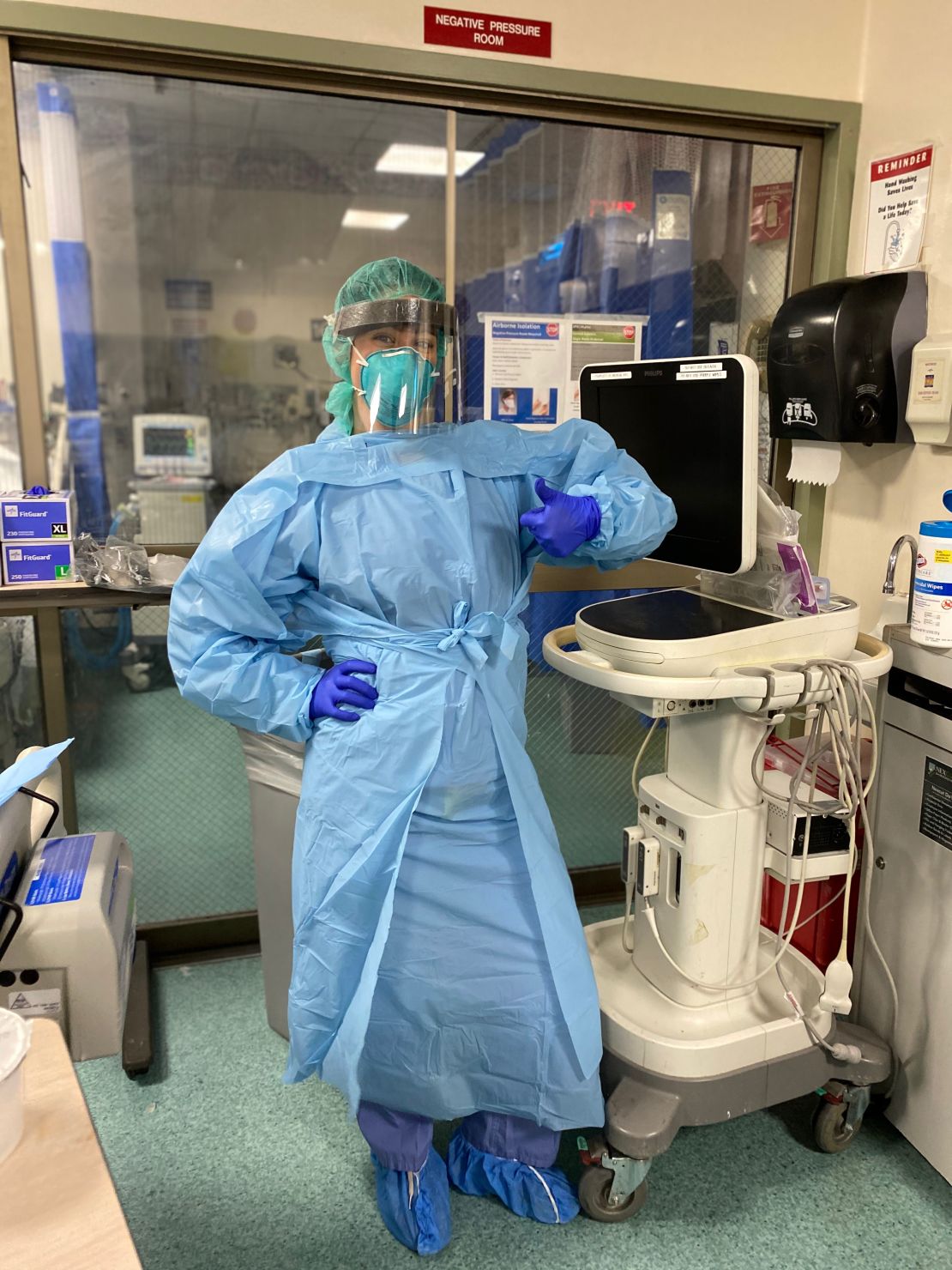Editor’s Note: Dr. Amy Plasencia is the chief medical resident at Brookdale University Medical Center and executive vice president of the Committee of Interns and Residents, affiliated with the Service Employees International Union. The views expressed here are hers. Read more opinion on CNN.
Not long ago, my colleagues and I swore the Hippocratic Oath, which requires new physicians to uphold the highest ethical standards.
Now during what is likely the most significant health crisis in American history in the Covid-19 pandemic, the Service Employees International Union’s Committee of Interns and Residents (CIR), which represents more than 17,000 interns, residents, and fellows across the United States, is demanding a bill of rights for resident physicians.

It would guarantee better working conditions, a living wage, and sick and family leave. We are also demanding no more than 80 working hours per week. If you think you read incorrectly, you did not. Many of us are currently working well beyond reasonable hours, and under grueling conditions.
With America now leading the world in the highest number of confirmed Covid-19 cases, we are facing the most critical medical challenge in a century. But the cohort of medical professionals who are the heartbeat of the US health care system — hospital interns, residents and fellows included — is under a massive assault as they fight the disease. In the absence of a vaccine, the best protection the nation has is the protection of frontline medical professionals. That’s why we urgently need a resident physicians bill of rights.
Interns are doctors who have recently completed medical school, are in their first year of post-medical school training and cannot practice medicine unsupervised. Residents can practice as general practitioners and receive further training to learn specialized skills. Resident physicians face numerous challenges in their work and are often exploited; they earn low wages, work extraordinarily long shifts and often experience burnout.
The Committee of Interns and Residents is calling on the health care industry, especially hospitals, the Accreditation Council for Graduate Medical Education (ACGME), specialty boards and elected officials, to acknowledge the rights of these young physicians. A bill of rights whose principles are enforced by US law can hold medical institutions accountable. Graduate medical education is currently self-governed by ACGME and individual institutions and needs external oversight to accomplish any real reform. The ACGME should institute the bill of rights, and there should be external enforcement by the US government.
A bill of rights would make our wellness a priority. Right now, many of us face inadequate staffing and support, stagnant wages, bureaucratic dysfunction and unequal or declining access to our own care. Even as we work hours above and beyond most full-time workers, we are not considered full-time employees, and are denied the opportunity to unionize and negotiate a better way forward.
Too often the rights of these men and women — who sacrifice their own well-being to care for others — are denied. Hospitals are facing severe shortages in personal protective equipment, ventilators, and ICU beds, and more and more health care workers are becoming infected. US schools are joining European countries graduating or considering graduating final-year medical students to join the ranks of the coronavirus fight.
In turn, it’s time for society to ensure the highest quality protection for health care employees. The efficiency and success of care begins with acknowledging the needs of those performing life-saving medicine. We are at patients’ bedsides in the ICU. We perform intubations and connect people to IVs. We read test results and write admission notes and discharge summaries.

First-year medical residents work up to 28-hour shifts, literally not sleeping. They are on the floors for 24 hours, and then the remaining four hours are spent on education, patient safety/quality improvement, and reporting patient status to the following team. In my experience and that of our members, these shifts occur every fourth night. There is an 80-hour cap on resident work weeks, but national studies demonstrate that residents underreport their working hours 60% of the time on average, largely to complete administrative tasks.
Many resident physicians face huge financial burdens and must pay off student loans. The average medical student graduates with $200,000 of debt. Moreover, the number of patients admitted at teaching hospitals rose 46% from 1990 to 2010, even though the number of residency spots increased only 13%. The pressures of the job take an enormous toll on physicians’ physical and emotional well-being.
According to surveys and academic literature, doctors are twice as likely to commit suicide than those in other professions. One in 10 fourth-year medical students and first-year resident physicians report having suicidal thoughts, according to SEIU’s collection of data from members and medical journals. More than a quarter report having fallen asleep at the wheel after being on call, according to the same data collection.
The unprecedented nature of this crisis — the need for sophisticated protective measures and a shortage of supplies and medicines — means increased vulnerability for already fatigued staff. That puts patients at greater risk than ever.
We must move rapidly to revitalize frontline workers, bolster their mental preparedness, and teach essential new critical skills. It’s time to fortify these rights for the future, as fundamental principles of equity. Establishing these rights will result in a more robust health care system — prepared to conquer Covid-19 and the generation of health challenges it will bring.

